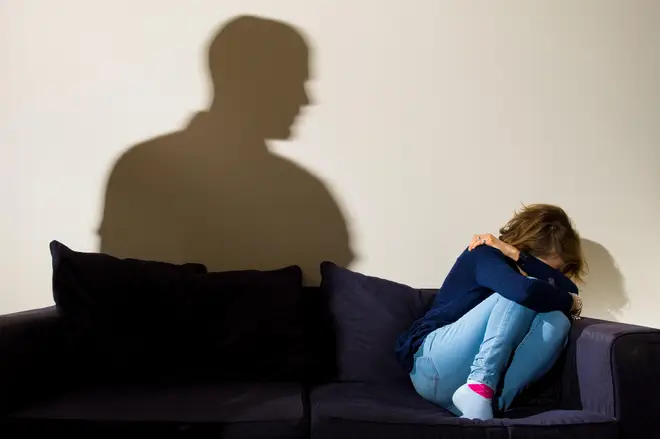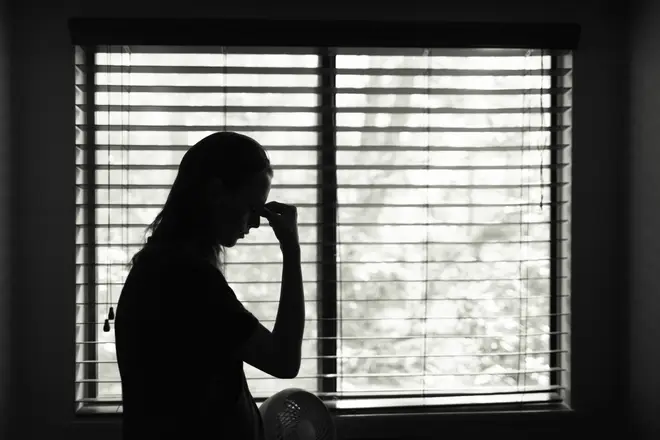
Clive Bull 1am - 4am
26 June 2023, 17:44 | Updated: 27 June 2023, 22:06

It’s warned domestic abuse victims are being re-traumatised by the justice system as three quarters of survivors are left without the support promised to them when their case goes to court.
LBC can reveal the findings of a major study of Specialist Domestic Abuse Courts in the UK, which began operating out of existing Magistrates Courts in 2005, to provide better protection and support for victims and witnesses.
It found examples in courts of survivors being left alone in corridors and waiting rooms with their abuser, and a shocking lack of understanding from staff, with one judge questioning why a victim didn't "just leave" their partner.
Despite the introduction of Independent Domestic Violence Advisors (IDVAs) within the courts, the report by Soroptimists International found 75% of complainants weren't able to get support and advice from them, often leaving them to navigate the justice system alone.
IDVAs are trained in domestic abuse, and are able to speak on behalf of victims, even if they are too scared to appear in court. They can help to ensure court formalities such as bail hearings are conducted correctly, and explain the system to the complainant.
The report also found "widespread evidence" of "poorly informed" judges and magistrates - for whom training on dealing with domestic abuse cases is now classed as 'essential'.
A survivor who spoke to LBC said the court system "nearly destroyed" them, and described the experience as being akin to the abuse she faced at the hands of her ex-partner for almost a decade.
Read more: Prince William launches five-year campaign to end homelessness in the UK
Annabelle, which isn't her real name, said she was "not listened to, and not safeguarded" during a four year ordeal as she tried to secure a non-molestation order against her ex-partner who had threatened to kill her son.
She told LBC: "It didn't matter what he did, what he said, or what had happened - what I said had happened - I was not listened to."
She described being stuck in rooms with her abuser who "hounded and threatened" her as they waited to go in to the courtroom.
Annabelle said the restraining order was only granted when her ex-partner physically attacked her in front of the judge, who he also threatened. She had to take shelter in the judges' chambers.

She described how she felt "judged" by the people she dealt with in court, who had "no clue" about what had become her "normal" way of life - which included carrying an alarm to go to the supermarket, and having a panic room built in to her home.
Former Victim's Commissioner Dame Vera Baird KC, who began the research in 2017, told LBC Annabelle's case was sadly not unique.
Dame Vera's main concern was the lack of Independent Domestic Violence Advisors, who she described as a "key component" of the system designed to protect and encourage victims, as they try and bring their abuser to justice.
The report found that victims who had support from an IDVA were twice as likely to go to court and help to secure their abuser's conviction, but underfunding had led to a high staff turnover, due to stress and increasing workloads.
Dame Vera told LBC: "Women are scared stiff of going to court - they have no idea what's going to happen, and probably won't go.
"When they've got a professional friend beside them who they can ring up, who will stay in touch, who explains it all to them, they are twice as likely to go to court, see it through, and get a good result.
"They [IDVAs] couldn't be more important."
Researchers spoke to 1,000 victims, and studied more than 30 Specialist Domestic Abuse Courts across England and Wales over five years - finding best practice at just two of them.
It also uncovered a lack of special provisions for victims, like video links or screens inside of the court, which are supposed to exist within the SDACs to minimise the fear of threat or intimidation from their abuser.
It comes after domestic abuse crimes increased further in the year to March 2022 – with 911,000 recorded by police in England and Wales. That accounts for 17% of all crimes recorded by forces during that time.
A Ministry of Justice spokesperson told LBC: “We’ve made significant improvements to the family court system in recent years to protect domestic abuse victims, including preventing cross-examination by their abusers, expanding their eligibility for legal aid, and extending the use of special measures like protective screens and the ability to provide evidence by video-link.”